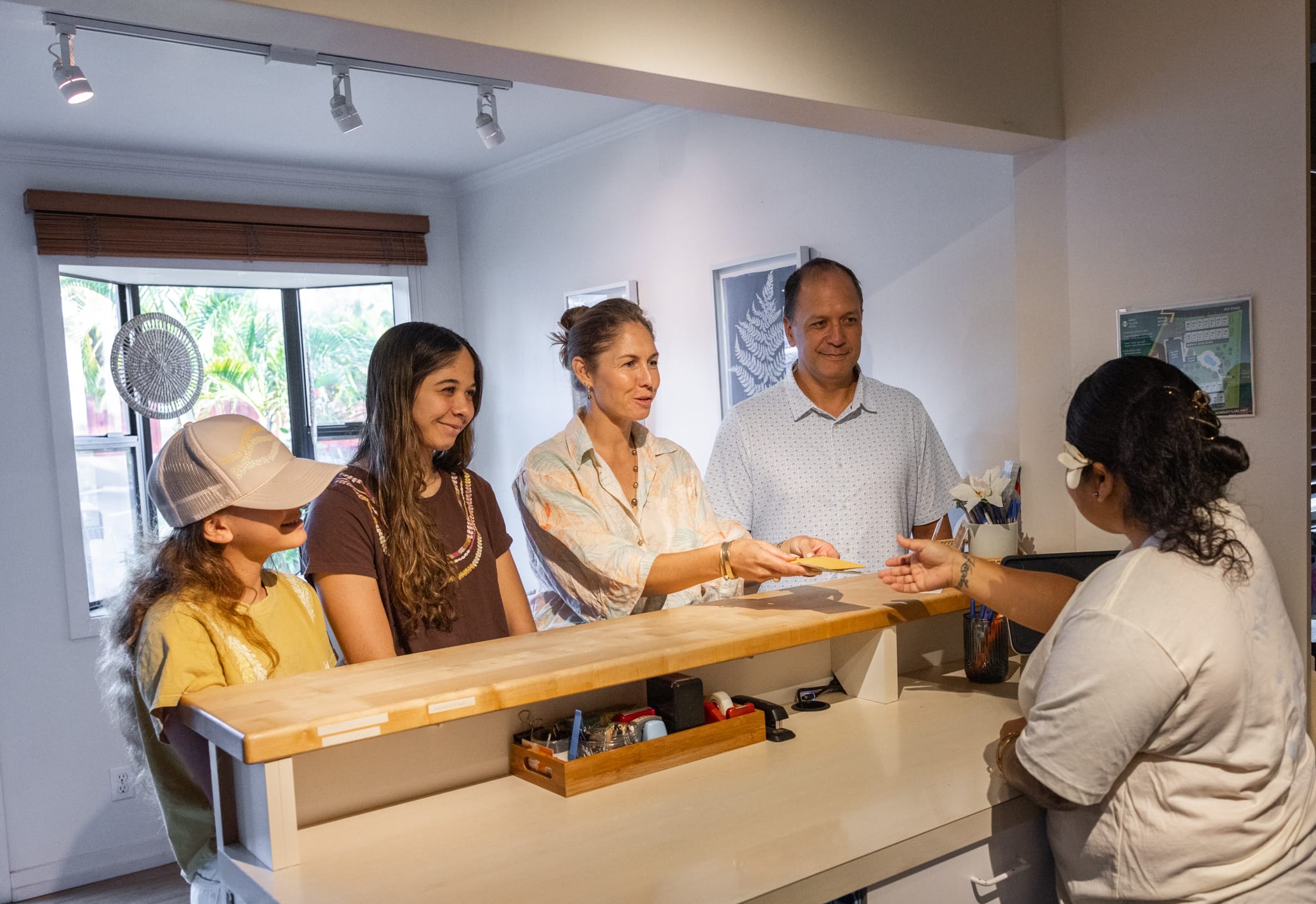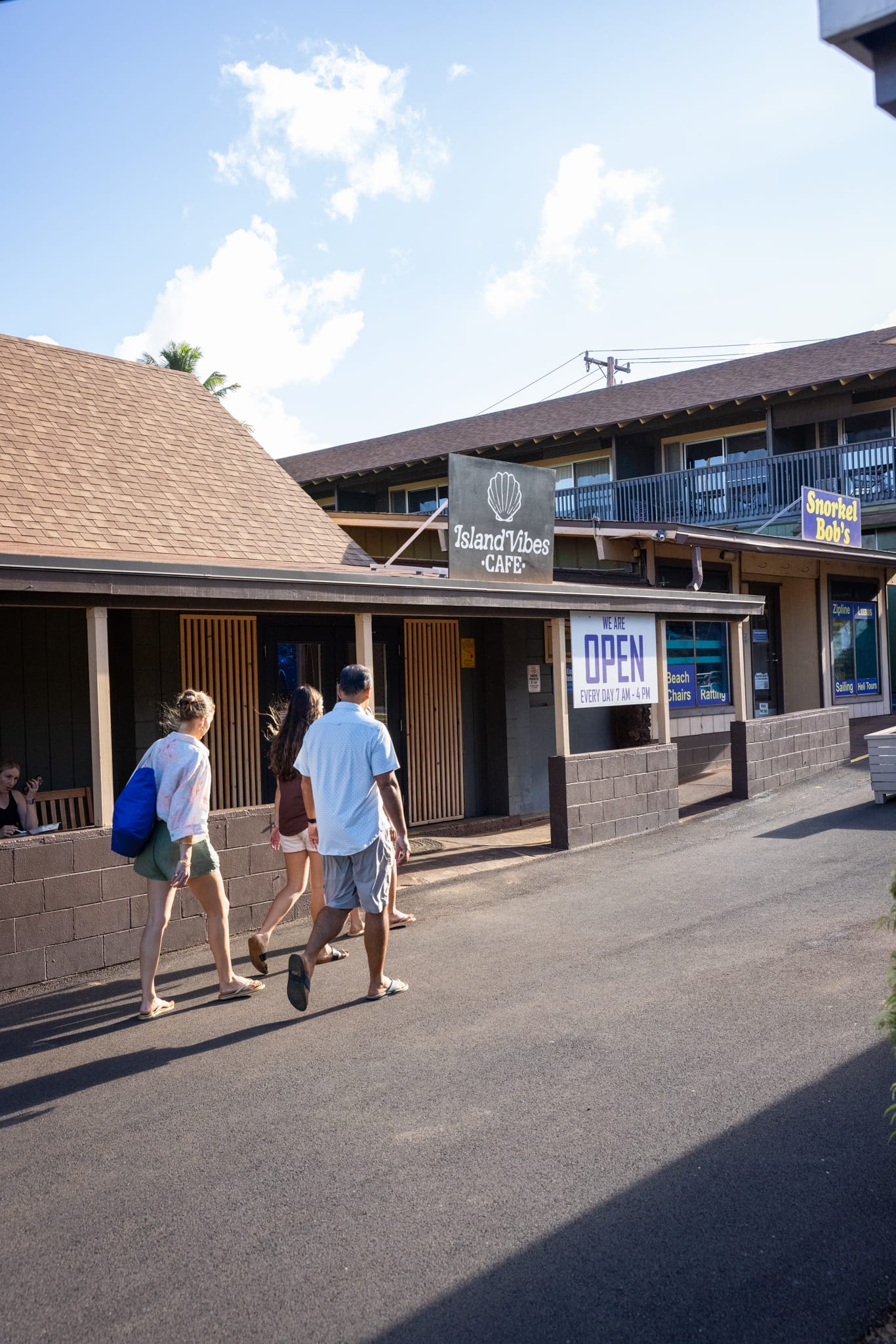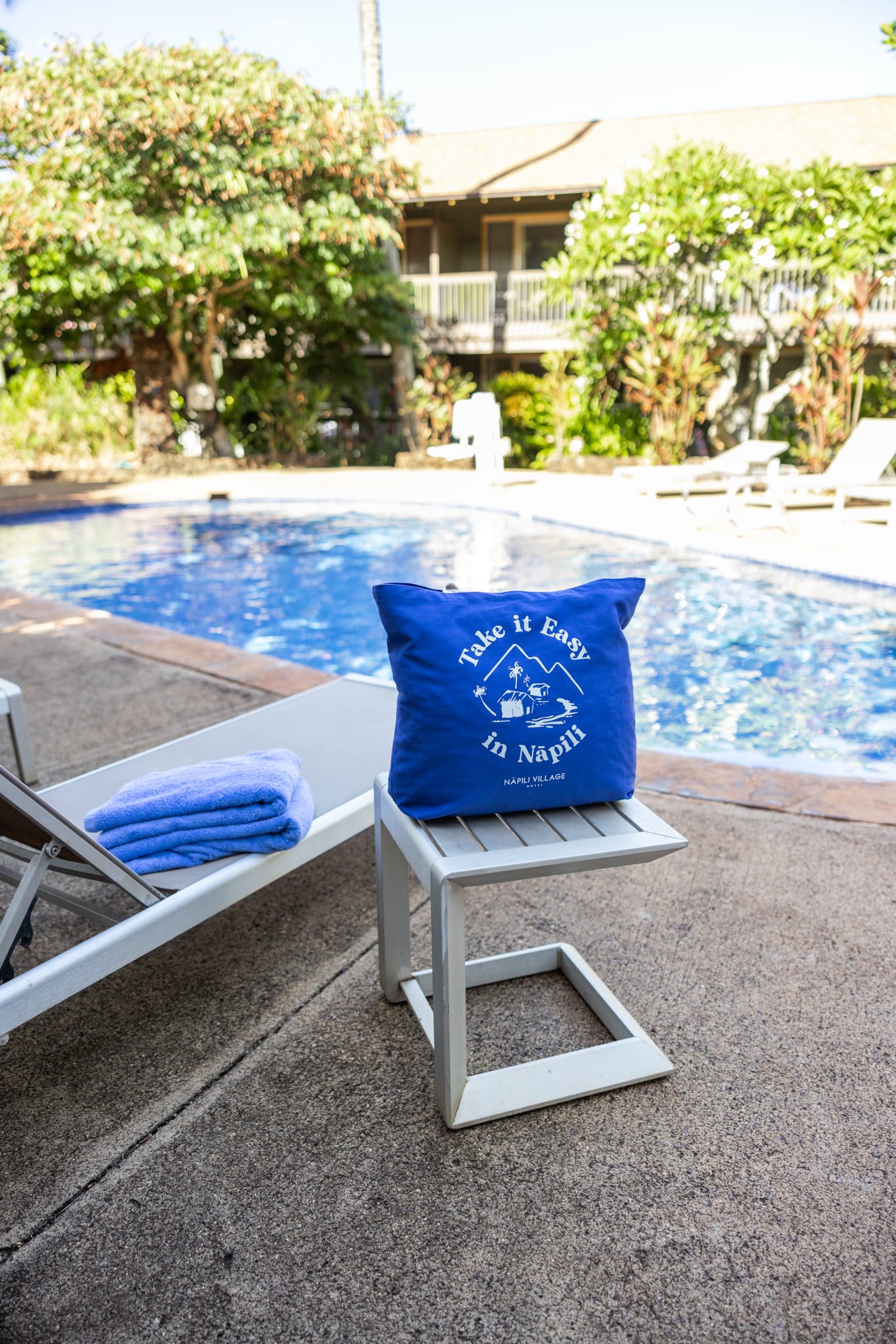“Mai ka lā hiki a ka lā kau”
(From sunrise til sundown)
Our Story
In the 1950s, Kepoikai Aluli, along with his business partner Yoshiho “Y” Ogami, purchased the land where our hotel sits. Back then, the beach was mostly empty with just a few homes along the bay. He’d come with his wife and their two young daughters for long visits from Oʻahu where they lived. With friends and cousins in tow, they’d spend their days swimming, fishing, and riding horses. There’d be mango pie for breakfast, fresh fish and he‘e (octopus) for dinner.



E komo mai
It’s this spirit of family and togetherness that you’ll find here at the Nāpili Village Hotel. After many decades under lease, the property is the kūleana (responsibility) of the Aluli family once more. Kepoikai’s daughter Yuklin is a kupuna (grandparent) now. And although much has changed here at her beloved Nāpili, feelings of aloha for this special place remain.
In Hawaiian, the word nāpili can mean a couple of things. It can refer to a native grass called pili, which ancient Hawaiians used as thatching for traditional hale (houses). But pili also means to cling or stick to, and it’s a word that’s used to describe feelings of closeness and familiarity.
For anyone who has visited Nāpili, this is a familiar sensation. Nāpili sticks to you. Its memories stay with you. It calls you back again and again.
“When you’re here, we invite you to take it easy in Nāpili. And when you leave, we hope you take a little bit of Nāpili with you.”
– Aluli Ohana
Relax
Here, your only schedule is the rhythm of the day—wake with the waves, wander at your own pace, and end with the sunset.
Stay Grounded
Reconnect with yourself, your loved ones, and the beauty of Nāpili Bay.
Feel Nostalgic
Where vacations feel like they used to—BBQs, board games, and barefoot beach walks.
Be restored
Leave behind the noise of everyday life and return home not exhausted, but refreshed, renewed, and full of aloha.




